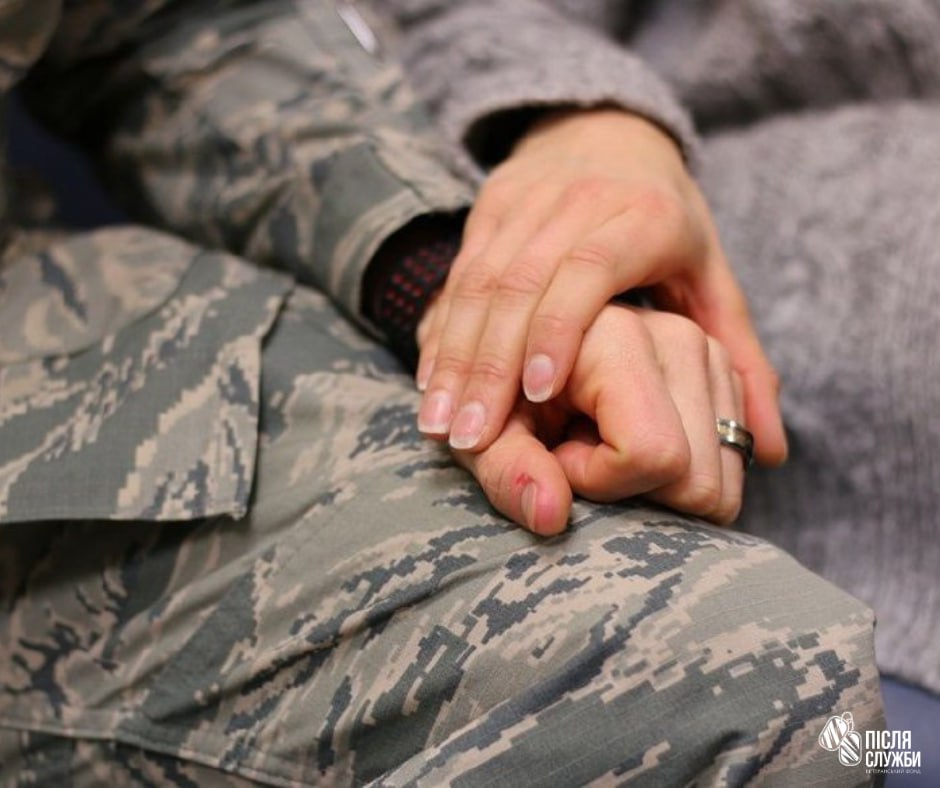PTSD in Military and Veterans: How Can We Help?

What is PTSD and who gets it?
Post-traumatic stress disorder (PTSD for short) does not occur in everyone who has experienced a traumatic event (war, disasters, terrorist attacks, anti-social acts) or witnessed it. Approximately 20% of the population is prone to PTSD symptoms.
Unlike Acute Stress Disorder (a few days after the event) and Adjustment Disorders (within a month after the event), PTSD occurs over several months. Delayed PTSD can generally manifest after 6-12 months if it is "awakened" by another stressful event.
The most urgent problem of PTSD is currently among the Ukrainian military (as well as civilians who have survived military events). The threat of death, the death evidence of fellow citizens and civilians, the situation of combat - all this can lead to the emergence of a disorder. A contusion received in combat can also significantly affect the development of PTSD.
Mechanism and symptoms of PTSD
What is the mechanism of PTSD? The psyche isolates the traumatic experience that it is unable or "afraid" to experience and pushes it into the unconscious, as a result of which this unconscious mental formation, which causes pain that is unbearable, begins to manifest itself through symptoms:
- emotional - increased aggression, anxiety, emotional numbing, subjective feeling of remaining threatened, inability to feel pleasure;
- cognitive - flashbacks – that is, memories of a traumatic event, nightmares, negative thinking, inability to describe one's own and other people's emotions;
- physiological - chronic fatigue, hyperarousal, impaired sleep, loss of appetite, increased heart rate, difficulty concentrating;
- behavioral - avoidance of thoughts, feelings, memories of a traumatic event, and at the same time – avoidance of situations that can cause them; paradoxical aggravation of the instinct of self-preservation; or, conversely, the phenomenon of acquired helplessness.
The main symptom of PTSD is considered to be intrusions, that is, the uncontrolled appearance of visual and auditory memories of a traumatic event, they are flashbacks. Emotional affects and avoidance are also important symptoms.
Diagnosis and methods of treatment
Early diagnosis of post-traumatic stress disorder (PTSD) is critical. It allows you to provide the necessary help and support in a timely manner, prevent exacerbation of symptoms and improve the overall prognosis.
Among the factors that influence the occurrence of PTSD can be both a genetic predisposition and the level of stress to a traumatic event, or the presence of similar events in a personal history (then we can talk about CPTSD - complex PTSD) and lack of support from loved ones.
Modern PTSD therapy includes three components: psychotherapeutic intervention, pharmacological influence, and psychosocial rehabilitation measures.
Among PTSD psychotherapy methods, CBT (Cognitive-Behavioral Therapy) and TF-CBT, Exposure Therapy, EMDR therapy, and Anxiety Management Training (AMT) performed best. Their overall goal is to support the adaptive skills of the Self, accept and master the symptom, abandon the avoidance strategy, and create a sense of control over the situation. PTSD pharmacotherapy is based on the prescription of antidepressants and (sometimes) antipsychotics.
Family and society as an environment of therapy
Very often for individuals experiencing PTSD symptoms, the world of other people is considered small and unimportant. There is a feeling that those who have not passed such tests cannot understand a person with PTSD, and attempts by loved ones to help are perceived with irritation. This is especially relevant for military personnel and veterans returning from the combat zone to the "civilian world". It is important not to take offense at this and not to leave a loved one to go through the crisis alone. Along with recovery, the ability to empathize will return!
Psychosocial rehabilitation is extremely important, the heart of which is, of course, the family, but also other ways of social support: educational, professional, recreational, etc. It is very important to involve a person with PTSD and his family in social life, this does not allow him to close in on his condition.
The "Pislya Sluzhby" (After Service) Foundation provides comprehensive support to veterans and active military personnel, which includes both psychological assistance at the first stages and well-thought-out social activities (veteran meetings, trainings, lectures, creative master classes).
A safe and comfortable atmosphere "among similar", a sense of importance and one's own social value, the opportunity to change the professional vector and find a new circle of communication - the goal and result of such meetings.
People with PTSD should feel like full-fledged and welcome members of society, and we should create safe, comfortable and pleasant socialization conditions for them, especially this issue is relevant for the defenders of Ukraine.